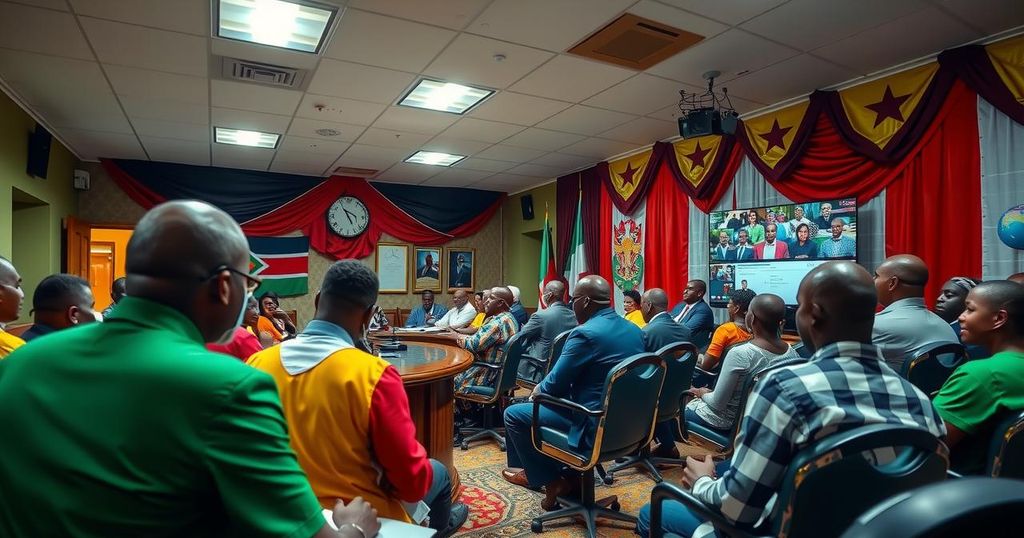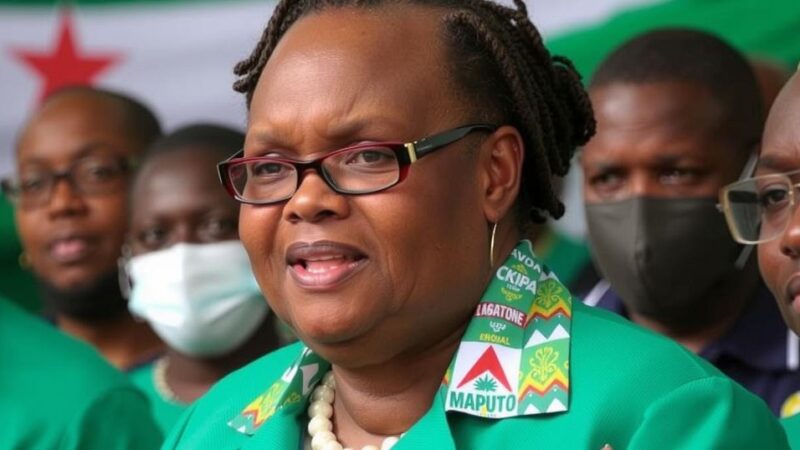Namibia’s ruling party Swapo has retained power but with reduced parliamentary influence following recent elections. While it won the presidential vote, opposition parties contest the results due to reported election irregularities. Sub-Saharan Africa has witnessed significant electoral setbacks for incumbents throughout 2024, driven by public dissatisfaction with economic management and governance, leading to increased assertiveness from opposition groups.
Namibia’s ruling party, Swapo, has managed to maintain its leadership after over three decades, yet it has experienced a notable decline in influence. The recent presidential election saw Swapo candidate Netumbo Nandi-Ndaitwah elected with 57% of the vote, marking her as the first female leader of the nation. However, the opposition has rejected the election results, citing significant logistical issues and anomalies during the voting process. Notably, Swapo’s parliamentary performance declined, losing twelve seats, raising questions about the party’s resilience in a changing political landscape.
The year 2024 has proven challenging for many governing parties across sub-Saharan Africa, as they face voters increasingly eager for change. Economic struggles, prevalent corruption, and the rise of assertive opposition factions have been key contributors to these electoral challenges. Governing parties in various regions, such as Botswana and Mauritius, have also suffered significant losses, indicating a broader trend of political dissatisfaction throughout the continent.
Among the starkest changes was the dramatic defeat of the Botswana Democratic Party in October, which saw a reduction from 38 parliamentary seats to just four. Similarly, in Mauritius, the ruling coalition’s support plummeted to 27%, resulting in a significant shift in parliamentary power. Other nations, including Senegal, have witnessed substantial opposition victories despite previous government efforts to suppress dissent.
Even when incumbents have retained control, such as South Africa’s African National Congress, they have done so by exhibiting weakened voter support, compelling them to form coalition governments. This year has seen vibrant political competition that challenges the long-standing dominance traditionally enjoyed by African governments. Public grievances regarding economic management and governance issues have prompted calls for accountability and change.
Across the region, civic organizations and opposition parties have grown more effective in mobilizing voters, leading to a remarkable political dynamism. As numerous countries prepare for future elections, including Ghana and Malawi, this momentum suggests increasing electoral challenges for ruling parties, hinting at a potential shift in political power dynamics over the coming years.
The article explores the evolving political landscape in Namibia and other sub-Saharan African nations, focusing on the electoral difficulties faced by incumbent parties in 2024. Despite enduring for over thirty years, Namibia’s Swapo party is experiencing disruptions due to increased public scrutiny of its governance, particularly amid economic concerns and allegations of corruption. The backdrop involves significant shifts in electoral patterns across multiple African countries, where opposition parties are beginning to prevail in previously unassailable political strongholds, heralding a potential transformation in regional governance and public accountability.
The recent electoral outcomes in Namibia and across sub-Saharan Africa indicate a profound shift in political dynamics, showcasing an electorate increasingly intolerant of stagnation and corruption. As opposition parties gain traction against established incumbents, it becomes evident that citizens are increasingly demanding accountability and responsiveness from their governments. This trend suggests a burgeoning resilience within African democracies, highlighting the importance of civil engagement and the potential for significant political transformations in the years to come.
Original Source: www.bbc.com







